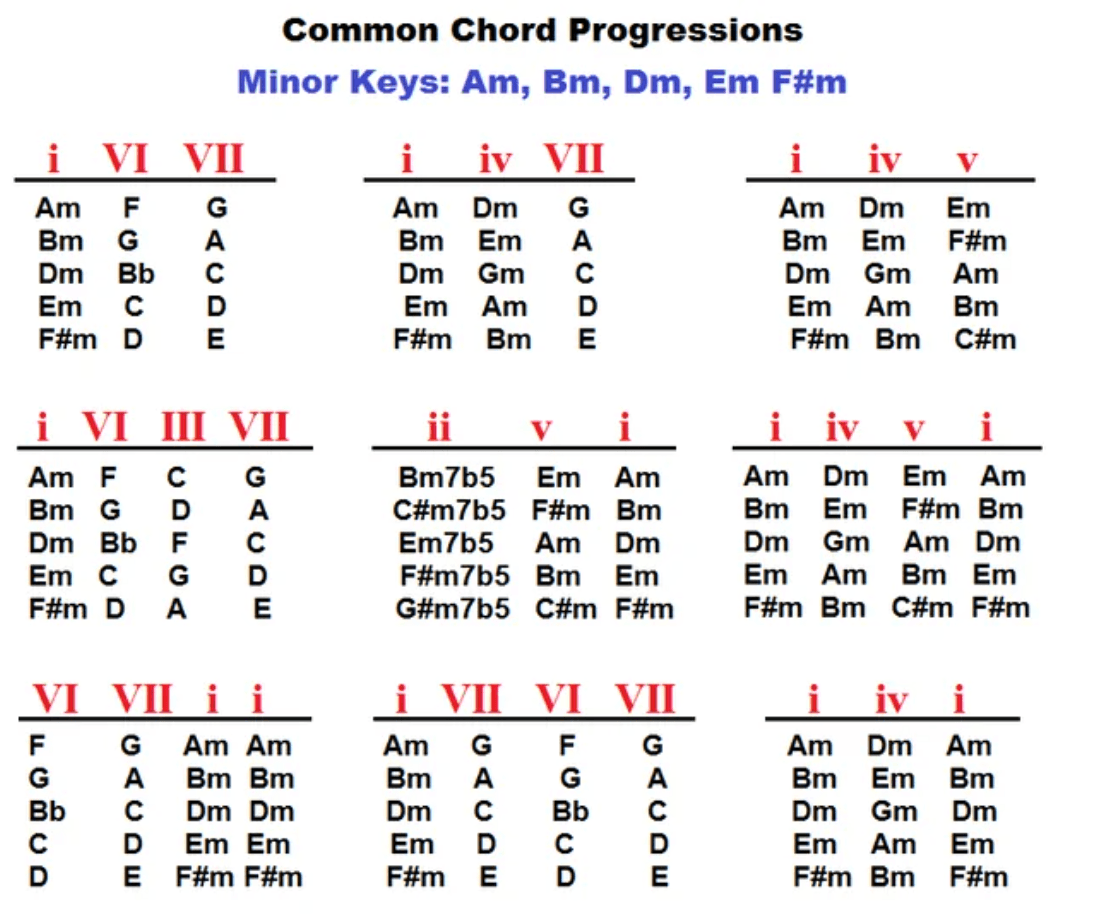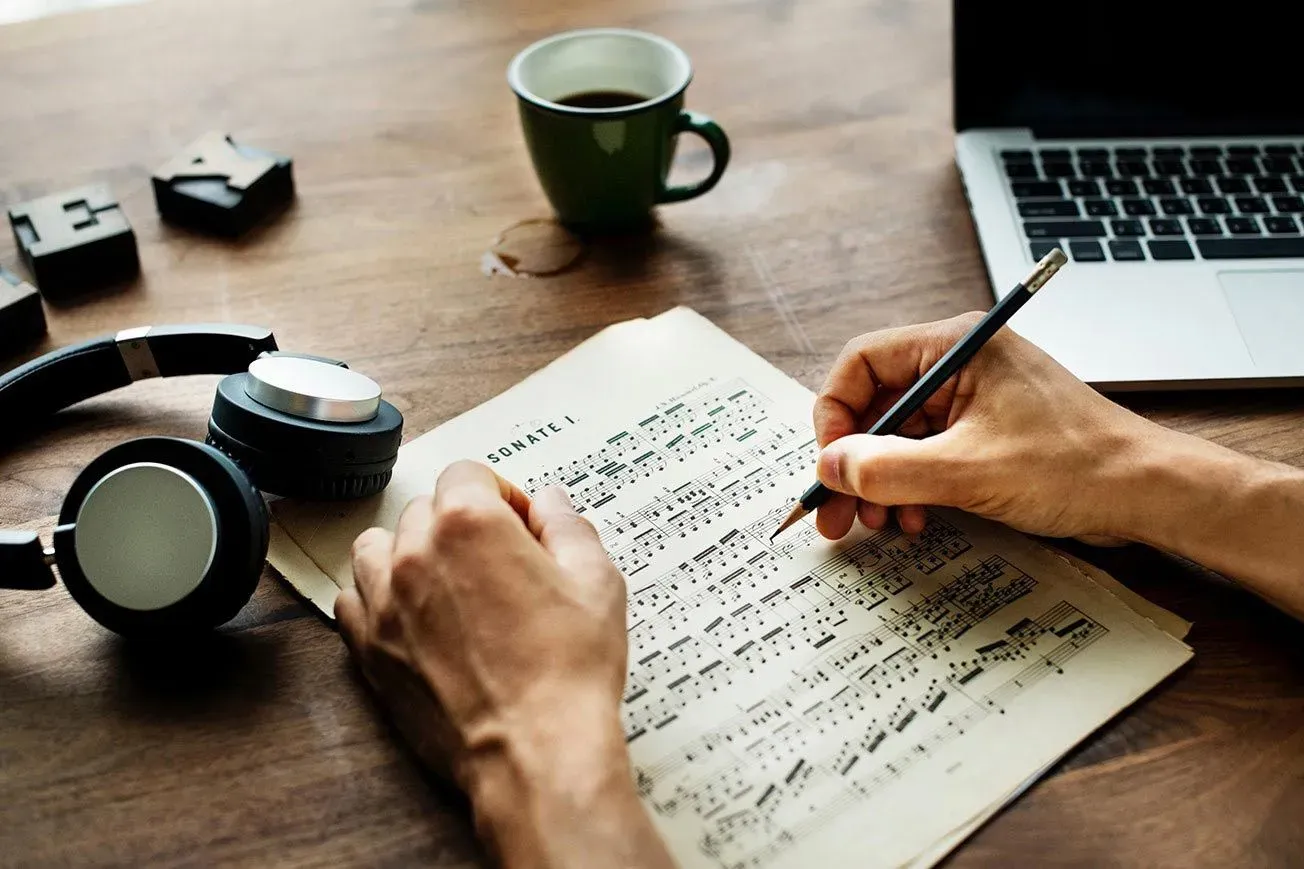The music industry is on the cusp of a new era with AI music tools.
These innovations are not here to take the stage but to set it for a diverse array of professionals, enhancing creativity and efficiency in the music-making process.
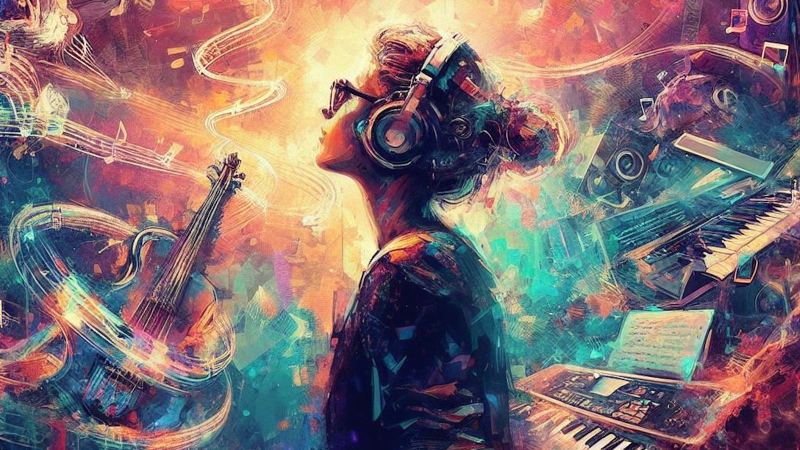
From Past to Present: AI's Role in Music Evolution
The melody of the music industry is one of constant evolution, a blend of tradition and innovation that has shaped its rhythm for centuries.
Today, we find ourselves at a pivotal note in this ongoing symphony as AI music tools harmonize the past's legacy with the present's technology.
From Phonographs to Algorithms
The music industry's journey has been one of fascinating transformation—from the tactile grooves of vinyl records to the abstract algorithms of AI.
Each era of musical innovation has brought with it new challenges and opportunities, and AI is the latest instrument in this historical ensemble.
Far from a cacophony, the introduction of AI music tools is a harmonious extension of this lineage, enhancing the creative process with precision and intelligence.
Also: See More about the The Evolution of Audio Production: From Acoustic to AI
The Vinyl Vanguard: A Prelude to AI Integration
In the vinyl era, music production was a hands-on affair, with tangible nuances influencing the final sound.
Today's AI, while digital, is the modern counterpart to this meticulous attention to detail, offering tools that augment human capability with its computational prowess.
The Digital Maestro: AI's Role in Shaping Modern Sound
Transitioning from analog to digital, AI has emerged as an innovative tool in the digital realm, weaving together intricate soundscapes previously unattainable.
This reflects the music industry's adaptability and eagerness to adopt innovative technologies that expand the horizons of artistry.
The Creative Concerto: AI's Support in Artistic Expression
With the possibility of various musical tasks assisted by AI, musicians and producers can invest more time in the heart of their work—conceptualizing and crafting stories through sound.
This AI tool can elevate the music-making process, allowing for an exploration of new creative vistas that were once obstructed by the laborious nature of manual audio production.
AI in Harmony: Changing the Music Industry Landscape
In the symphony of modern music production, AI music tools are the new instrumentalists, enhancing the orchestra without overpowering the soloists.
Automating the Repetitive: The Rhythm of Efficiency
AI's capacity to handle repetitive tasks—like sorting samples or applying basic effects—frees up countless hours.
This liberation from monotony allows artists to invest more time in pure creation, exploring and innovating without constraint.
Budget Harmony: The Financial Maestro
For independent artists or small studios, audio AI tools reduce the financial barriers to entry.
They democratize music production, allowing those without extensive resources to produce quality work without significant investment.
The Soul of Music: AI as the Conduit, Not the Creator
Despite AI's role in music's evolution, the soul of a composition—its concept and message—remains the province of the human spirit. AI may offer the palette, but the true art comes from the artist's vision, using AI as a means to bring their inner world to life.
AI in the music industry is not a revolution but an evolution, one that balances technological advancements with the timeless essence of creativity and human connection.
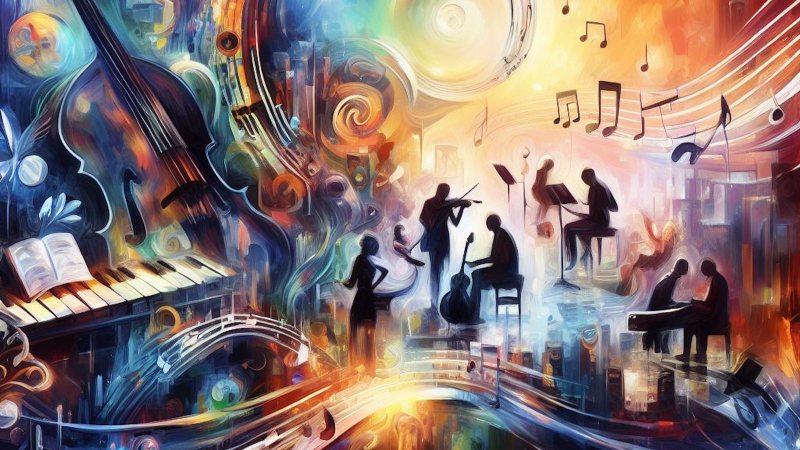
The Future Soundtrack: Predicting New AI Music Jobs
As we compose the future score of the music industry, AI music tools play a leading role in orchestrating a new suite of careers.
These innovative tools are not only changing the way we create and experience music but also how we work within its ever-evolving landscape.
1. The AI-Assisted Sound Engineer
AI-Assisted Sound Engineers will transform audio production by integrating AI to optimize the mixing and mastering process.
These professionals will fine-tune AI algorithms to enhance sound quality, creating a seamless blend of electronic and organic sounds.
Their expertise will not only be technical but also creative, as they work to preserve the artistic intent within the mechanically optimized output.
2. The Music Data Analyst
The Music Data Analyst will serve as the industry's navigator through the sea of data produced by streaming platforms and consumer interactions.
With the help of AI tools, they will forecast trends, identify patterns, and provide insights that drive strategic decisions in music creation and distribution.
3. The AI Music Marketer
AI Music Marketers will revolutionize promotional strategies by utilizing AI to analyze and predict which songs are likely to become hits.
By understanding listener habits and preferences, they will curate personalized marketing campaigns that effectively engage target demographics on various platforms.
4. The Creative AI Liaison
The Creative AI Liaison will act as the intermediary, ensuring a harmonious collaboration between AI capabilities and the creative vision of artists and producers.
They will be key in translating artistic concepts into technical requirements that AI can execute, maintaining the soul of the music while leveraging AI's efficiency.
5. The AI Music Educator
Educators specializing in AI and music will be crucial in preparing the next wave of industry professionals.
They will design curricula around the use of AI music tools and teach essential skills for integrating AI into creative and business practices within the music industry.
6. Data Jockey
The Data Jockey will be pivotal in transforming large datasets into meaningful narratives for the music industry.
Utilizing AI to sift through and analyze listening trends, they will help shape future music productions and targeted marketing campaigns, ensuring content aligns with listener demands and emerging trends.
7. Spin Tracker
Spin Trackers will employ AI to track and analyze music streaming data, providing artists and labels with insights into song popularity, listener demographics, and airplay frequency.
This information will be crucial for timing releases and maximizing the impact of promotional efforts.
8. Royalty Miner
Royalty Miners will leverage AI to navigate the complex web of music licensing and royalty distribution.
By ensuring accurate tracking and collection of royalties, they will play a critical role in advocating for fair compensation for creators in the digital age.
9. Metadata Maestro
The Metadata Maestro will harness AI to ensure that all music content is properly tagged and cataloged.
This role is essential for searchability and discoverability in digital music platforms, impacting everything from streaming algorithms to royalty payments.
10. AI Choreographer
AI Choreographers will revolutionize stage production by designing synchronized light and stage effects that respond to the music in real-time.
They'll use AI algorithms to create dynamic performances that push the boundaries of live entertainment, enhancing the overall experience for audiences.
11. AI Performance Analyst
These professionals will delve into the nuances of AI-generated music, meticulously reviewing compositions for quality and authenticity.
They will provide critical feedback to fine-tune AI algorithms, ensuring that the output is sophisticated enough to be perceived as created by human artists.
12. AI Intellectual Property Manager
Specialists in this field will navigate the complex intersection of AI and copyright law.
They will manage rights and ensure proper compensation for AI-generated compositions, setting precedents in the evolving landscape of musical intellectual property.
13. AI Integration Specialist
Charged with the harmonious melding of AI into traditional music production, these specialists will ensure that AI tools are implemented effectively, enhancing the creative process without disrupting the artist's workflow.
14. AI Ethical Compliance Officer
This role will be crucial in maintaining the integrity of AI applications in music.
Officers will monitor AI systems to ensure compliance with ethical standards, safeguarding against bias and ensuring that data privacy and copyright laws are respected.
15. AI-Curated Experience Designer
Designers in this innovative role will craft immersive musical experiences using AI.
They will create dynamic soundtracks for interactive media, ensuring that the music adapts in real-time to changes in user interaction or game environments.
16. Machine Learning Audio Researcher
These innovators will act as the avant-garde of audio AI, continually exploring new applications of machine learning to enhance music production.
They will experiment with cross-disciplinary technologies, like adapting image recognition for sound analysis, to create more intuitive and responsive AI music tools that can anticipate and adapt to a musician's needs.
17. AI Creative Director
The AI Creative Director will play a pivotal role in overseeing the artistic integrity of music production, ensuring that while AI provides technical support, the artistry remains distinct and human-centric.
They will fine-tune AI outputs to align with the artist's vision, ensuring that each piece of music retains a unique character and emotional depth that resonates with audiences.
18. AI Music Creation Specialist
These experts will master platforms like Soundful to empower producers with advanced control over AI-generated music.
Their role is critical in fine-tuning AI outputs to match the intricate requirements of music production, ensuring that AI complements rather than overshadows the human creative process.
19. AI-first Artist Developer
These strategists will pioneer the support for "AI-first artists," guiding them in using AI to not only create music but also build their virtual personas and career storylines.
They will be instrumental in integrating emerging technologies, like mixed reality, to elevate the presence of AI artists in live performance spaces.
20. Generative Music Curator
These curators will sift through the plethora of AI-generated music to select pieces that resonate with cultural relevancies and personal tastes.
They will adapt AI outputs to fit market trends and audience demands, ensuring that even algorithmically generated music maintains a personalized and human appeal.
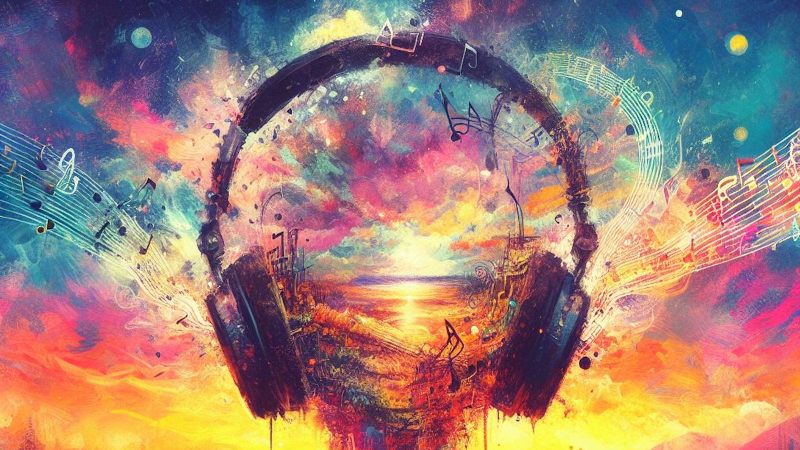
The Beat Goes On: Educating for the AI Era
The rhythm of the music industry is ever-changing, and with AI music tools becoming a staple, education must evolve in tandem.
Adapting to AI is not just about keeping pace; it's about leading the charge into the future of music.
Staying Ahead of the Tempo
Tuning Into AI: The New Music Literacy
Musicians, producers, and industry professionals must now become fluent in AI, understanding its language and potential to enhance their craft.
This new literacy is not optional; it's the sheet music for the next generation of industry success stories.
The Investment in AI Education
Investing time and resources into learning about audio AI tools and audio production AI integration is not merely for immediate gains but a long-term strategy.
Those who master AI's capabilities today will define the production standards of tomorrow.
Future-Proofing Your Career
By embracing AI, music professionals are not just future-proofing their careers; they're expanding their creative horizons.
The digital maestro will be able to compose, produce, and perform with a depth and efficiency that only AI can provide, setting a new benchmark for the industry.
Education in AI is the foundation upon which the future of music will be built, ensuring that as the industry evolves, the beat, indeed, goes on.
Empress: Your Creative Partner in the AI Composed Future
Empress is your ally in this new symphony of opportunities. By embracing AI music tools, you're not stepping back from your craft; you're stepping into a future where your skills are amplified and your creative potential knows no bounds. Join Empress in shaping the future of music, where AI is the instrument, and you're the maestro.
FAQs: AI Music Jobs
Q1: What are AI music tools and how do they impact the music industry?
AI music tools are advanced software that utilize artificial intelligence to enhance various aspects of music production, from composition to mixing, enabling musicians to focus on creative expression.
Q2: Can AI create music on its own?
While AI can generate musical components, the most impactful and emotionally resonant music still requires the creative direction and touch of a human artist.
Q3: Will AI replace jobs in the music industry?
AI is expected to transform jobs in the music industry, automating certain tasks to increase efficiency, but it will also create new roles that blend AI with human creativity and oversight.
Q4: How can I prepare for the future of AI in music?
Staying informed about AI advancements and integrating AI tools into your workflow can prepare you for the evolving landscape of the music industry.
Q5: What are some emerging AI music jobs?
Emerging AI music jobs include roles like AI Performance Analyst, AI Intellectual Property Manager, and AI-Curated Experience Designer, which combine technical AI knowledge with musical expertise.
Follow the future of music with Empress. Check out our blog to learn how you can effectively use these AI music tools.
